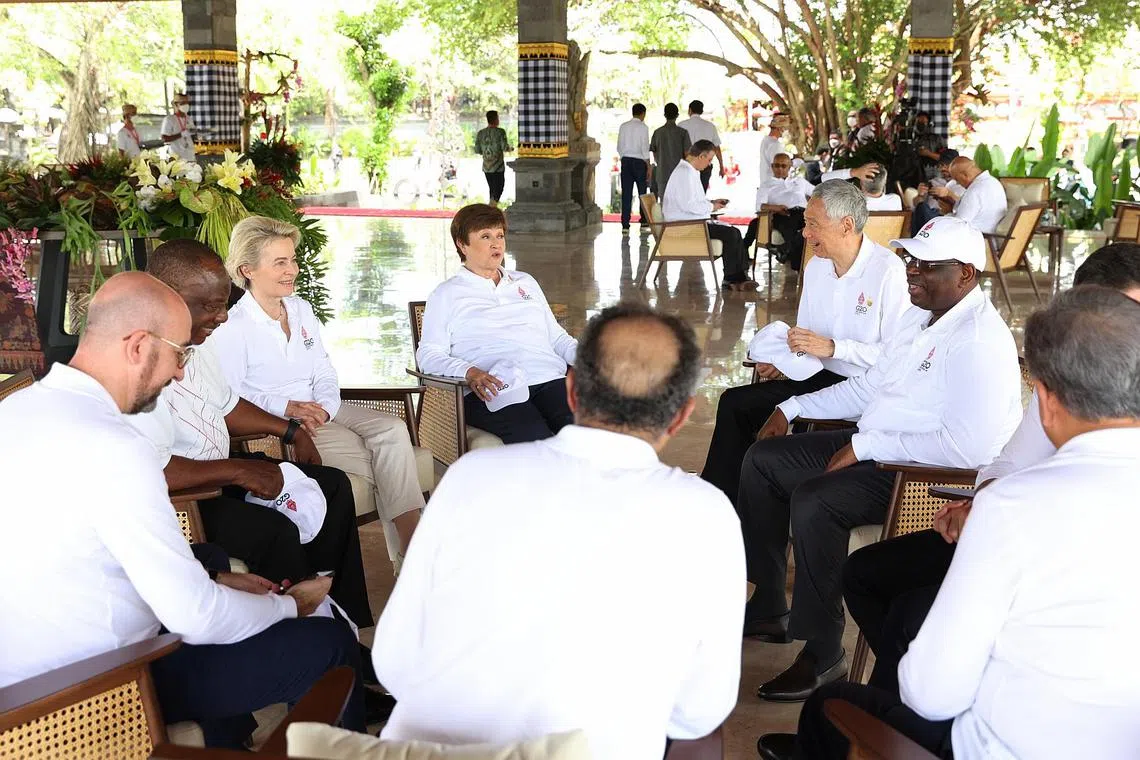G-20 summit: Improve cross-border rules to boost cooperation in digital economy, says PM Lee
Sign up now: Get ST's newsletters delivered to your inbox

Prime Minister Lee Hsien Loong (third from right) speaking with other delegates during a visit to a mangrove forest in Bali during the G-20 Leaders' Summit, on Nov 16, 2022.
PHOTO: MCI
NUSA DUA, Indonesia - To create opportunities for cooperation in digitalisation, countries should improve how cross-border rules, standards, data frameworks and policies work together to make doing business easier, said Prime Minister Lee Hsien Loong.
Speaking at the Group of 20 (G-20) Leaders’ Summit on Wednesday, PM Lee noted that Singapore has signed digital economy agreements
Singapore is also working with Indonesia, the Asean chairman for 2023, to advance the Asean Digital Economy Framework Agreement
Singapore is not a member of the G-20, but is regularly invited to attend its meetings as the convenor of the Global Governance Group, or 3G, an informal grouping of 30 small and medium-sized members of the United Nations.
PM Lee is participating in the two-day summit at the invitation of the G-20 chairman, Indonesian President Joko Widodo.
At a session on digital transformation, PM Lee said the Covid-19 pandemic has accelerated digitalisation in many countries, and it is a driver for future growth and for the achievement of the United Nations’ Sustainable Development Goals. Countries should use digital innovations to boost trade, enhance financial inclusion and improve service delivery, he said.
Five members of Asean – Indonesia, Malaysia, the Philippines, Singapore and Thailand – will press ahead to link their real-time payment systems, he said, adding that such multilateral connectivity can be scaled up to other jurisdictions or regions.
“We look forward to learning from others who have also promoted the development of foundational digital infrastructure globally, such as the India Stack, to improve public service delivery to those who are most in need,” he said.
Singapore will start a trial using a purpose-bound digital Singapore dollar
There is also a need to develop consistent international regulation for digital assets, he said.
Digital assets have significant economic potential, he said. But as digital innovations grow and become more interconnected with financial markets, they can potentially create risks to financial stability.
“The G-20 should work with relevant standard-setting bodies to develop international regulations to address these risks, in line with the principle of ‘same activity, same risk, same regulation’.”



